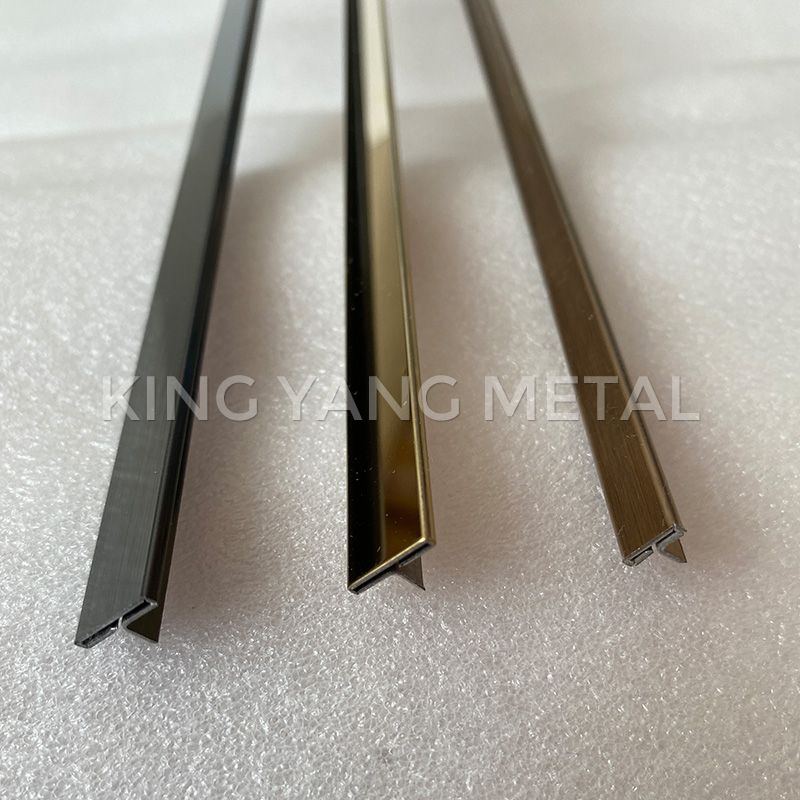Decoration Profiles: Enhancing Spaces with Style and Functionality
When it comes to interior design and architectural projects, every detail matters. Decoration profiles, often referred to as trim or molding, are essential elements that add the finishing touch and enhance the overall aesthetic appeal of a space. These profiles come in various materials, shapes, and sizes, offering both style and functionality. In this article, we will explore the significance of decoration profiles and their transformative impact on spaces.
Decoration profiles serve multiple purposes in interior design and architecture. One of their primary functions is to create a seamless transition between different surfaces, such as walls, floors, and ceilings. They conceal joints, gaps, or uneven edges, providing a clean and polished look. Whether it's a crown molding that elegantly bridges the gap between the wall and ceiling or a baseboard that covers the transition between the floor and wall, decoration profiles ensure a visually pleasing and cohesive appearance.
Beyond their functional role, decoration profiles contribute significantly to the aesthetics of a space. They add depth, character, and architectural interest to otherwise plain and monotonous surfaces. The Stainless Steel Profile come in a wide range of styles, from classic and ornate to modern and minimalistic, allowing designers to choose the perfect match for the desired ambiance and theme. Whether it's a simple cove molding, an intricate chair rail, or an elaborate cornice, decoration profiles can enhance the style and personality of any room or architectural feature.

Decoration profiles also offer the opportunity to play with proportions and create visual illusions. For instance, a tall baseboard can make the ceiling appear higher, while a crown molding can give the impression of a larger room. Profiles with intricate designs or unique shapes draw attention and become focal points, adding drama and sophistication to the space. By carefully selecting and placing decoration profiles, designers can manipulate the perception of scale, proportion, and overall spatial experience.
In addition to their aesthetic value, decoration profiles can provide practical benefits as well. They can act as protective barriers, preventing damage to walls, corners, and edges. Profiles made from durable materials, such as wood or PVC, can withstand wear and tear, adding longevity to the interior or architectural feature. Profiles can also serve as functional elements, such as providing a surface to attach lighting fixtures, concealing wiring or cables, or even acting as shelves or ledges for displaying decorative items.
Decoration profiles come in a variety of materials, allowing designers to select the most suitable option for the project. Wood profiles bring warmth, elegance, and a timeless appeal. They can be stained or painted to match the desired color scheme. PVC profiles offer durability, moisture resistance, and versatility. They are easy to clean and maintain, making them suitable for high-moisture areas such as bathrooms or kitchens. Other options include plaster, polyurethane, or metal profiles, each offering their unique characteristics and aesthetic possibilities.
In conclusion, decoration profiles are essential elements in interior design and architecture. They provide both style and functionality, enhancing the overall aesthetic appeal and adding a finishing touch to spaces. With their ability to create seamless transitions, add architectural interest, and manipulate spatial perception, Stainless Steel decoration profiles play a significant role in transforming ordinary spaces into extraordinary ones. From classic and ornate to modern and minimalistic, the wide range of profiles and materials allows for endless creative possibilities. By carefully selecting and incorporating decoration profiles, designers can elevate the visual impact and create spaces that are both visually stunning and functionally practical.
329
0
0

Comments
All Comments (0)